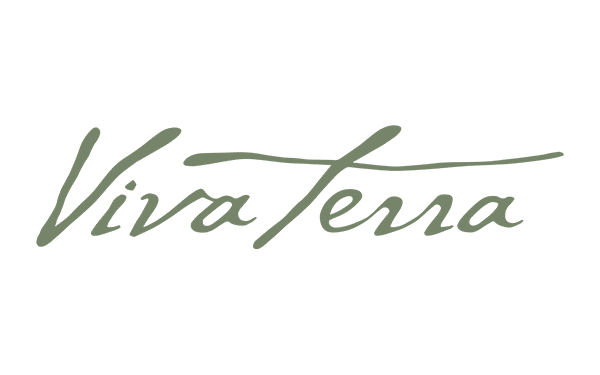Introduction – Ethical Home Goods
The journey towards ethical sourcing and fair trade can sometimes feel overwhelming. It’s like stepping into a vast, bustling global marketplace filled with beautiful home goods, each carrying its own story of craftsmanship. Behind every handcrafted rug, there’s a weaver meticulously threading each fiber. Behind every sustainable wooden furniture piece, there’s a conscious decision to preserve our forest resources.

Making ethical purchases isn’t just about shopping; it’s about connecting with these stories, supporting artisans worldwide, and playing your part in reducing our collective carbon footprint. In essence, each ethical purchase we make echoes a commitment to a healthier, fairer world, shaping a legacy for generations to come. Remember, when you decide to make your home not just beautiful, but ethical too, you’re contributing to a powerful ripple effect of positive change.
The Impact of Your Purchase on Carbon Reduction
When you choose to buy ethically sourced home goods, you’re supporting brands that subscribe to humane working conditions and fair pay, significantly bolstering sustainable trade practices. Moreover, these ethical brands often adopt environmentally friendly manufacturing processes, which leads to a reduction in carbon emissions.
A case in point is IKEA’s far-reaching sustainability plan that aims to become climate positive by 2030. Primarily, they commit to using renewable and recycled resources, along with optimizing the supply chain to reduce their carbon footprint.
The Role of Ethical Home Goods in Sustainable Living
Understanding a product’s origin, from creation to disposal, is crucial in truly grasping ethical consumption’s essence. A standout brand embracing this philosophy is Coyuchi. Their organic home textiles reduce environmental impact by avoiding harmful chemical inputs and improving water use. Further, they encourage consumers to participate in a circular economy through subscription and recycling programs, reducing waste, and promoting sustainable living.
Identifying Ethical Home Goods and Sustainable Brands
To identify ethically produced products, look for certifications like Fairtrade International, Global Organic Textile Standard (GOTS), or Rainforest Alliance. Or, ask about brands’ carbon footprints and sustainability initiatives; businesses committed to transparency like The Citizenry and Patagonia will always be willing to share this information.
1. Boll & Branch

Boll & Branch is a high-end textile brand renowned for its commitment to environmental sustainability and fair labor practices. The company’s ethically-produced line of home goods boasts luxury beddings, bath linens, and decorative pillows, all made with 100% organic cotton. Certified by Fairtrade and GOTS, the brand guarantees that no harmful chemicals were used in the production of its products.
Boll & Branch goes above and beyond by investing in its supply chain – from offering fair wages to cotton farmers to reducing its carbon footprint, it embodies the concept of conscious consumerism. The quality and comfort of their products are commendable, making Boll & Branch a premium choice for those wanting to integrate ethics and sustainability into their lifestyle.
2. West Elm

West Elm is an established name in the realm of modern and contemporary home furnishings. They have recently taken a strong stance on ethical sourcing and sustainability with the introduction of their “West Elm Green” line. Their efforts to promote responsible retail are laudable, with initiatives that encompass responsible sourcing, fair trade, and organic textiles.
West Elm’s products are a perfect blend of aesthetic appeal and ethical design. Many items from their ethical home goods collection are certified by the Forest Stewardship Council (FSC), Rainforest Alliance, and Fair Trade USA, reassuring customers of their commitment to ethical and sustainable practices.
3. VivaTerra

VivaTerra, meaning “living earth,” offers an array of artisan-crafted home goods that encompass the brand’s commitment to ethical sourcing, sustainability, and ecological innovation. VivaTerra prides itself on offering products made of reclaimed or recycled materials, ensuring minimal environmental impact.
Their collection includes furniture, decor, kitchenware, and bed and bath items, all of which hold a unique, globally-inspired aesthetic. Each product from VivaTerra tells a story of craftsmanship and sustainability, making it an excellent choice for those seeking to make their homes not just beautiful, but also ethical. The company’s firm commitment to fair trade and sustainability, as well as its unique, handcrafted designs, make it a standout in the field of ethical home goods.
4. The Citizenry

The Citizenry is a globally-inspired home decor brand that prioritizes artisan craftsmanship and ethical production. Every piece in their collection is handcrafted, limited edition, and created with sustainably-sourced materials. From stunning Moroccan rugs to handwoven baskets from Uganda, each item tells a story of the people and culture behind it.
The Citizenry’s transparent pricing model and commitment to providing fair, direct wages to their artisan partners demonstrate their dedication to ethical business practices. Their beautiful, high-quality pieces come with the added benefit of supporting global artisan communities and sustainable manufacturing methods.
5. Patagonia

While Patagonia is predominantly known for their sustainable outdoor clothing and gear, they have also ventured into the home goods sector. Applying their rigorous environmental and social standards, Patagonia’s line of home goods includes items such as organic cotton towels (ShrinkThatFootprint covers eco-friendly towels in depth), responsibly-sourced wool blankets, and sustainable glassware.
Each product is made with the brand’s overarching commitment to reduce harm to the environment and support fair labor practices. The quality of Patagonia’s home goods mirrors the robustness and durability found in their clothing line. For consumers who are outdoor enthusiasts or simply wish to support a company with a strong environmental ethic, Patagonia’s smaller selection of home goods are a fantastic choice.
Integrating Ethical Home Goods into Your Eco-friendly Lifestyle

Decorate consciously by integrating ethical home goods from companies like Boll & Branch, Westbrook, or VivaTerra. Beyond making your home look beautiful, these brands also tell compelling stories about sustainability and fair trade.
Also, you can reduce waste considerably by maximizing the lifespan of the products and choosing brands like Leesa Sleep that offer recycling or buyback programs.
Tips for Encouraging Sustainable Living and Carbon Reduction
By adopting other lifestyle changes such as reducing energy consumption and adopting more plant-based meals (owing to the high carbon footprint of meat production), we can all contribute further to carbon reduction.
Conclusion – Ethical Home Goods
As we’ve explored, every purchase of ethical home goods and decor plays a part in the vast tapestry of sustainable living and carbon reduction. As consumers, the power is in our hands to influence change by supporting eco-friendly brands and making conscious buying decisions. By doing so, we support fair trade, reduce carbon emissions, and ultimately contribute to a healthier planet. You too can join in transforming your home into a haven of sustainability.
